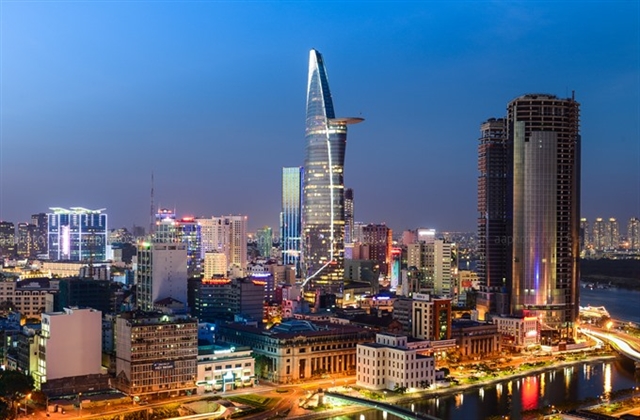The aim of making HCM City an international financial hub depends on greater financial liberation that the country has to achieve by 2030 at least, experts say.

The aim of making HCM City an international financial hub depends on greater financial liberation that the country has to achieve by 2030 at least, experts say.
Addressing a workshop on the topic last Friday, Nguyen Xuan Thanh, senior lecturer at Fulbright University Vietnam, said: “A roadmap to achieve financial liberalisation is required to build a financial centre in Viet Nam.”
He said only countries like China with huge markets could become international financial centres even as the government strictly controls foreign capital flows.
To become an international financial hub, HCM City would need to develop policy mechanisms, legal frameworks, infrastructure, technology platforms and human resources.
It would need to improve its monetary market and banking system, the capital market and the derivatives market, he said, adding: “It needs to develop Fintech, digital banking and a digital financial transaction market.”
Monetary policy independence, including foreign exchange rate flexibility, interbank interest rate stability and inflation control would also be also an important factor that has to be ensured.
Dr Nguyen Duc Kien, head of the Prime Minister’s Economic Advisory Group, said the project to develop HCM City into an international financial centre could only succeed if some fundamentals are built.
The city needed a comprehensive legal framework as international investors would need clear laws that are predictably enforced, he said.
What it takes
According to several experts at the workshop key characteristics of international financial centres include a highly sophisticated capital market and competitive tax and regulatory regimes designed to attract foreign investment into financial services.
The city needs to improve its competitiveness and growth quality through healthy economic restructuring, and ensure a favourable business environment for enterprises, encouraging start-ups, innovation and smart-city measures.
It also needs solid market infrastructure because investors are drawn to markets where they can complete trades efficiently and cost-effectively.
Vu Bang, former chairman of the State Securities Commission, said HCM City needed a complete financial ecosystem of international standards.
It needed to diversify its financial markets, like having a gold section on the commodity trading floor and establishing a merger and acquisition (M&A) market.
“The international financial centre should be able to conduct cross-border financial transactions and have diverse financial products.”
Several experts concurred that turning HCM City into an international financial centre would require three phases.
The first phase, from now until 2025, would be used to build the necessary infrastructure; the second phase, lasting the following 10 years until 2035, would involve developing the needed institutions and skilled human resources; and the final phase would develop an international financial market.
HCM City has assigned the HCM City Financial Investment Company to work with Fulbright University Viet Nam to draw up a roadmap for developing HCM City into an international financial hub.
The city has signed a memorandum of understanding (MoU) with the Imex Pan Pacific (IPP) Group to carry out a feasibility study for the project.
Phan Thi Thang, vice chairwoman of the HCM City People’s Committee, said the administration would take into account all the experts’ opinions as it worked on achieving the aim of becoming an international financial hub.
"As a gateway to major financial centres and capitals in Southeast Asia, HCM City has great potential to become a global financial centre," she said.
“It has excellent financial infrastructure with numerous banks, financial intermediaries, investment funds and financial firms that play a vital role in attracting and distributing capital,” she added.
The city contributes around 22.3 per cent of the country’s GDP, 27 per cent to the national budget revenues, and attracts 34 per cent of the country’s FDI.
More than 200 leading experts, businesses and officials from various ministries attended the workshop. — VNS





